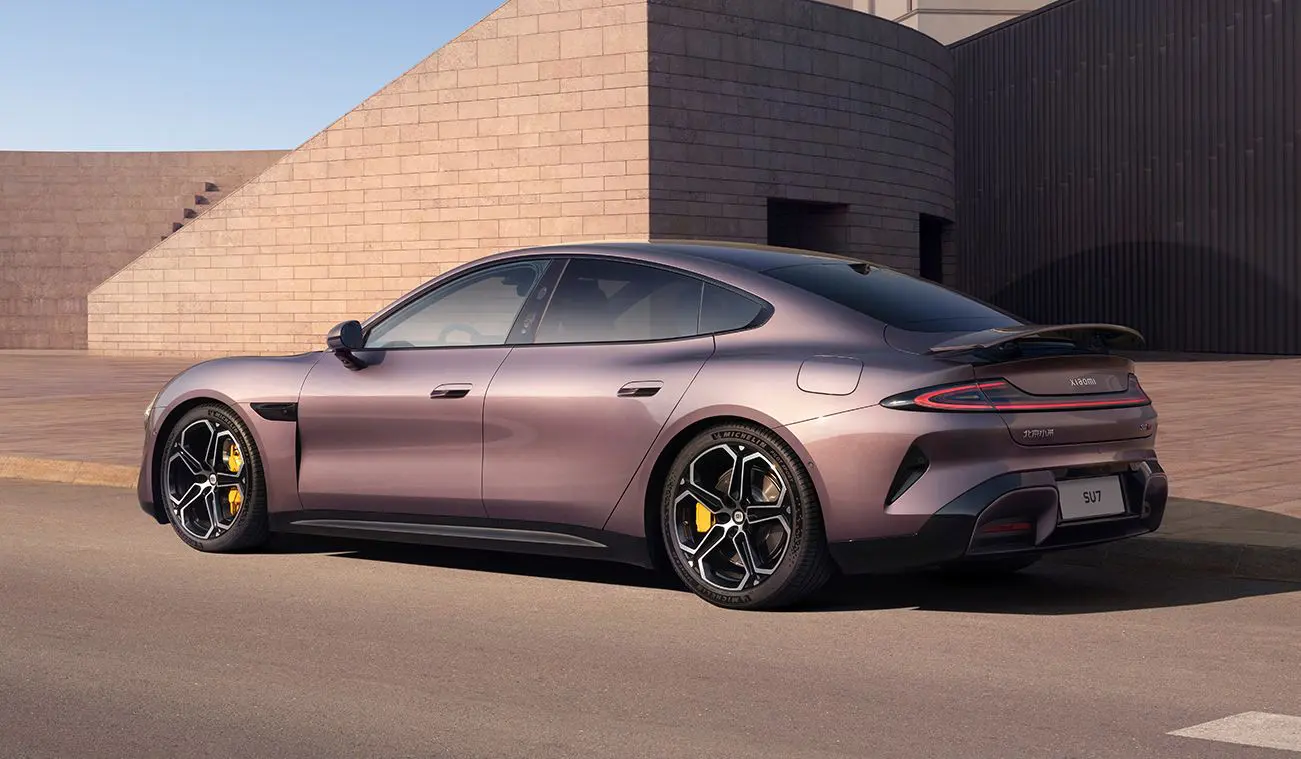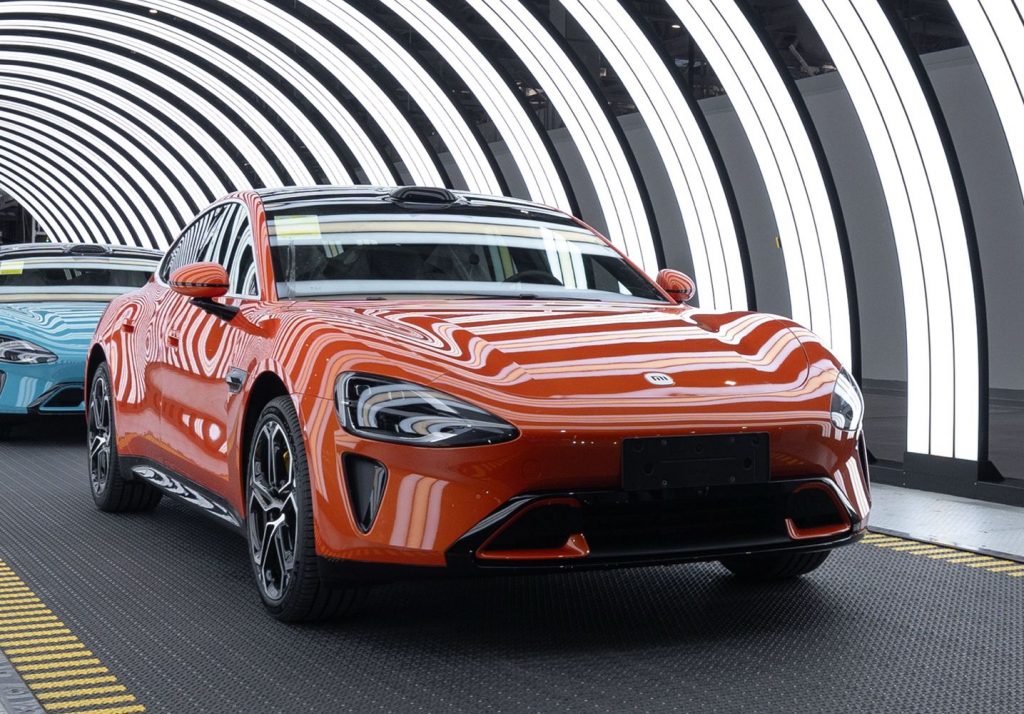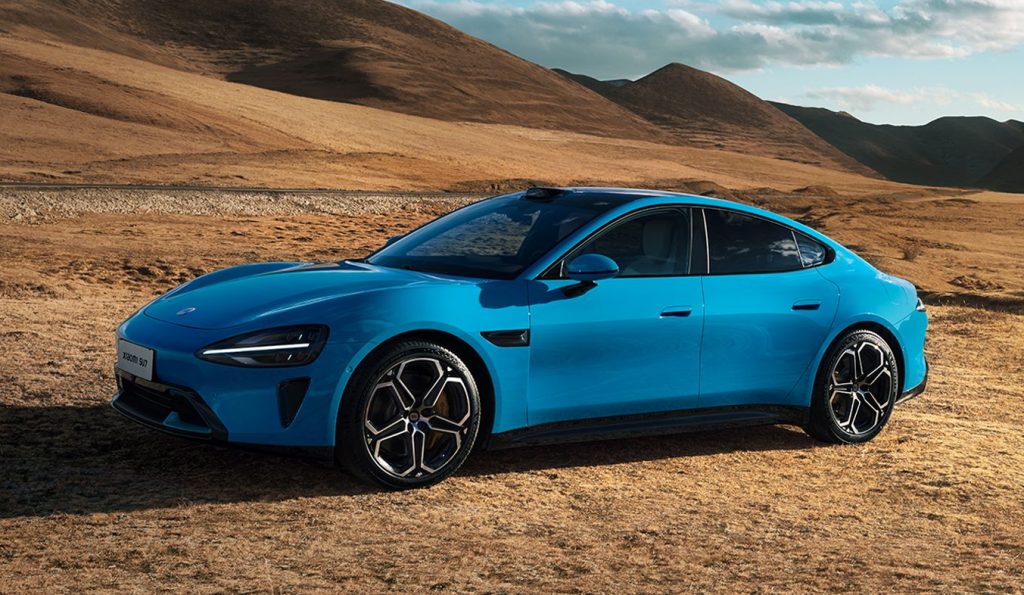Xiaomi has officially launched the highly anticipated first electric car, the SU7, offering a starting price of $29,870.


🟢 101 kWh integrated NMC battery pack
🟢 871V electrical architecture with a silicon
carbide-chip inverter achieving 99.6% efficiency
🟢 810 kilometers of range
🟢 Two electric motors capable of generating 673 HP, 838 Nm of torque, and reaching a rotation speed of 21,000 rpm
🟢 Acceleration from 0-100 km/h in 2.78 seconds, maximum speed of 265 km/h, and a braking distance of 33.3 meters from 100-0 km/h
🟢 220 km of range with a 5-minute charge and 510 km of range in 15 minutes

🟢 Xiaomi Pilot Max smart driving system featuring 11 cameras, 12 ultrasonic radars, 3 mmWave radars, one LiDAR, and two NVIDIA DRIVE Orin chipsets, enabling full autonomous driving across China starting from August 2024 and offering self-parking capabilities in parking lots.
Xiaomi claims that once its Beijing factory reaches full capacity, a car will roll off the assembly line every 76 seconds, and deliveries will begin in a few weeks.

In the top-tier package named SU7 Max, the electric sedan offers a range of 700 km with a 73.6 kWh BYD LFP battery, allowing it to cover 350 km with just a 15-minute charge. It promises 299 horsepower from a single motor and accelerates from 0-100 km/h in 5.28 seconds.
The mid-tier package, called Xiaomi SU7 Pro, impresses with its features at a price point of $34,400. This model retains the 299 HP motor but comes with a larger 94.3 kWh CATL Shenxing battery. Equipped with an LFP cathode, this battery provides a range of 830 kilometers on a single charge, with a 0-100 km/h acceleration time of 5.7 seconds.
Despite being its first car, Xiaomi enters the market with a bold stance in terms of hardware, software, and pricing. Hopefully, it will start sales in the European and Turkish markets soon.
